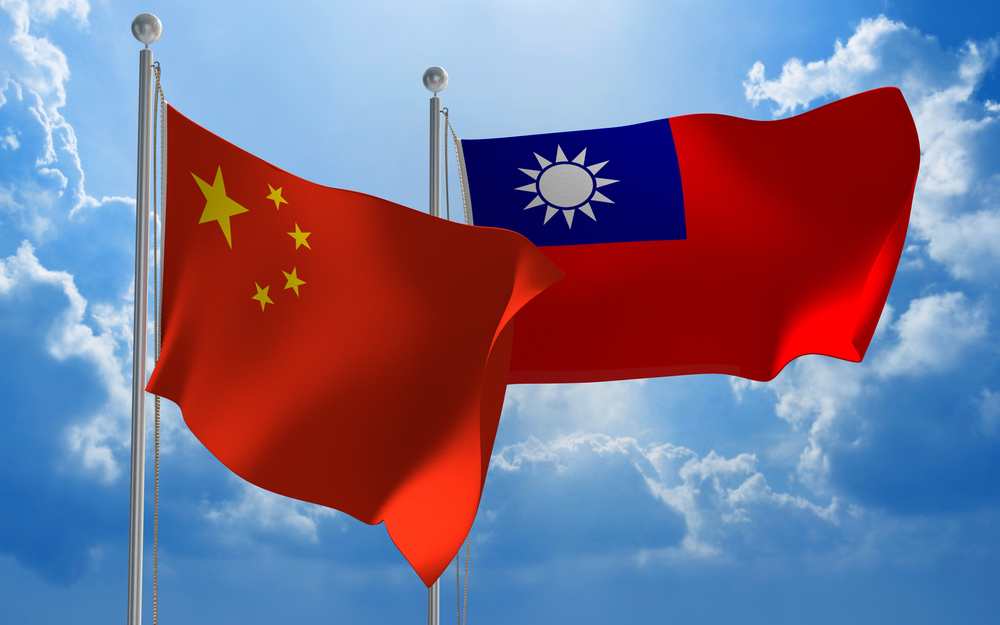Can Beijing and Taipei Get Along?

Please note that we are not authorised to provide any investment advice. The content on this page is for information purposes only.
The historic meeting in Singapore between Chinese President Xi Jinping and his Taiwanese counterpart, Ma Ying-jeou, on 7 November was the first ever between the leaders of the two countries. With the next Taiwanese presidential elections only two months away, the meeting was seen by many observers as a last-minute attempt by the Chinese government to persuade the Taiwanese electorate that the ruling Kuomintang (KMT) remains the best choice for dealing with Beijing.
The historic meeting in Singapore between Chinese President Xi Jinping and his Taiwanese counterpart, Ma Ying-jeou, on 7 November was the first ever between the leaders of the two countries. With the next Taiwanese presidential elections only two months away, the meeting was seen by many observers as a last-minute attempt by the Chinese government to persuade the Taiwanese electorate that the ruling Kuomintang (KMT) remains the best choice for dealing with Beijing.
However, one could also interpret it as a recognition on behalf of China’s leaders that domestic trends in Taiwan require the development of a new approach towards dealing with Taipei.
Beijing is aware that the KMT is poised to lose the presidency and control of the Legislative Yuan to the opposition Democratic Progressive Party (DPP) in the upcoming January 2016 election, in part because of Ma’s too China-friendly policies. At the end of October, the KMT dumped its candidate, Hung Hsiu-chu, due to her unpopular election campaign for even closer ties with China.
The Chinese Communist Party (CCP), despite showering Taiwan with economic gifts, has discovered that money cannot buy love. Despite preferential economic deals, trade increasing by more than 50 percent and mainland tourism to Taiwan increasing to 4 million visitors in 2014, it seems that attempts to woo Taiwan with economic benefits alone remain unsuccessful. Instead, China-friendly policies are now associated with the KMT ‘getting too close to China’ and the idea that they have ‘sold Taiwan to China’.
The CCP therefore needs to start preparing for a DPP leadership and cross-Strait relations post-January 2016. Beijing has an interest in maintaining as many channels of communication with Taipei as possible and emphasising interdependence. Luckily, chances are high that under the leadership of Tsai Ingwen the DPP will be less driven by pro-independence ideology. One of her key campaign pledges has been to reduce the polarisation between the ‘Pan Green–Pan Blue’ divide. If elected, she is unlikely to revert to the same pro-independence rhetoric of the 2000–2008 Chen Shui-bian administration that infuriated Beijing and alienated its security guarantor, Washington.
The importance of the (informal) US security guarantee provided by the 1979 Taiwan Relations Act far outweigh the costs of calling for unilateral independence without Washington’s backing and risking a war with China. As a result, while a DPP win would be a suboptimal outcome for Beijing, it would not automatically create greater tensions across the Taiwan Strait and shut the door for selective cooperation. There is a distinct possibility that Beijing might continue to engage Taiwan within the context of the current ‘status quo’, its bellicose rhetoric notwithstanding.
The need for both sides to develop a cooperative approach under a DPP government is imperative due to key domestic attitude shifts in both Taiwan and China — dynamics that, left unaddressed, could make the delicate balancing act across the Strait more difficult to maintain over the next few years.
Tsai is aware that for a majority of Taiwanese voters — of which 43 percent are now swing voters — the question of unification versus independence is not the most pressing issue. Far more important is fixing Taiwan’s stagnating economy. And despite the negative perception of close economic ties to China, good economic relations are critical to support the ailing Taiwanese economy.
Recent opinion polls show that a clear majority of Taiwanese citizens identify themselves as solely Taiwanese and support for unification with the mainland is at an all-time low. In the future, given the democratic nature of Taiwan’s political system, any Taiwanese administration, as well as the CCP, will have to take this opposition to unification into consideration. Tsai’s response to the Xi–Ma meeting was therefore, measured, emphasising that any development in cross-Strait relations had to follow democratic procedures and have the public’s support.
At the same time, for China the Taiwan issue remains one of national prestige. It links to the legitimacy of the CCP regime in the context of the ‘one China’ policy and the ‘one country, two systems’ framework. In recent times, a more nationalistic public in mainland China has only added pressure for the leadership to remain firm on Taiwan.
Until now, the CCP has always rejected the notion of meeting a leader of Taiwan, as this would imply recognition of Taiwan’s sovereignty. Consequently, Beijing needs to avoid the public perception that the CCP has become soft on Taiwan. Indeed, the CCTV broadcast of President Ma’s announcement of the meeting censored his Republic of China flag pin. At the meeting, Ma’s five-point proposal for the ‘peaceful development’ of cross-Strait relations was also prematurely cut off at the fourth point.
However, the Xi–Ma meeting also reflected a gradual shift in the CCP’s attitude towards cross-Strait relations. Beijing is aware that the United States is unlikely to abandon Taiwan and that Taiwan’s socio-political trends are not in its favour, making a unilateral move towards reunification extremely costly. That implies the need to work pragmatically with the next government. In this sense, the Xi–Ma meeting was a watershed for China in its recognition of a new era in managing cross-Strait relations.
The Xi–Ma meeting signals a new era in China–Taiwan relations is republished with permission from East Asia Forum




